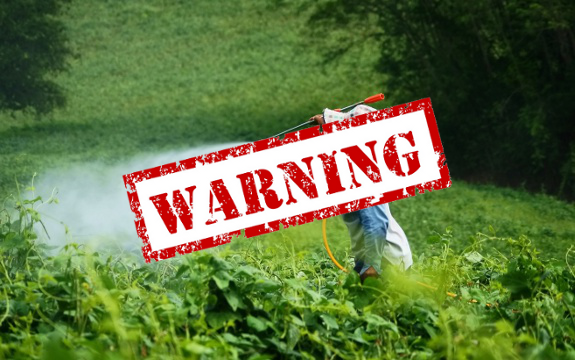Reports Expose Foods with Pesticides Causing Serious Developmental Neurotoxicity

 While other countries are busy limiting the use of certain pesticides, the US food industry is not only allowing them, but putting them in baby food. According to the EFSA, Europe’s largest food safety agency, two pesticides – acetamiprid and imidacloprid – have the potential to damage the “developing human nervous system,” and particularly, the brain. They have also been credited with contributing to the decimation of honey bees around the world.
While other countries are busy limiting the use of certain pesticides, the US food industry is not only allowing them, but putting them in baby food. According to the EFSA, Europe’s largest food safety agency, two pesticides – acetamiprid and imidacloprid – have the potential to damage the “developing human nervous system,” and particularly, the brain. They have also been credited with contributing to the decimation of honey bees around the world.
The pesticides acetamiprid and imidacloprid need tighter restrictions. They say these two pesticides, commonly found in conventionally-grown US crops, can have serious health repercussions and must be cut back.
Earlier this year, the US Dept. of Agriculture tested fruits and vegetables for these very same pesticides and found them to be prevalent.
“American parents should be outraged. For years, children in the U.S. have been eating foods contaminated with these two pesticides even though there was little or no research to prove that they wouldn’t harm children’s health,” said co-founder of the Environmental Working Group, Ken Cook. “This latest news out of the European Union is precisely why EWG issues its annual Shopper’s Guide to Pesticides, because many of these chemicals that were once thought to be safe turn out later to present a potential risk to people, particularly kids.”
The USDA detected imidacloprid on about 22 percent of tested conventionally-grown produce between 2006 and 2011. Those with the most imidacloprid included:
- Broccoli (60 percent)
- Cauliflower (59 percent)
- Grapes (51 percent)
- Spinach (48 percent)
- Lettuce (34 percent)
- Potatoes (33 percent)
For acetamiprid, 10 percent of tested produce came back with positive results. The produce where it was found most frequently included:
- Summer squash – zucchini and yellow squash (51 percent)
- Apples (29 percent)
- Pears (27 percent)
- Celery (19 percent)
- Collard greens (17 percent)
Further, in 2010 and 2011, the USDA detected acetamiprid on more than one-fourth of the pears used to make baby food.
“For parents who have been able to follow the old adage, ‘don’t panic, buy organic,’ this news from European regulators and USDA laboratories is further reason to justify the value of their investment in their children’s health,” Cook added.
The sickening overuse of pesticides has led to countless environmental and health issues both in the U.S. and on a global scale. The effects of pesticides range from infertility and birth defects to diabetes and cancer. What’s more, these hundreds of millions of pounds of pesticides can’t be washed off! There is no eliminating pesticides from our foods once they are sprayed onto our plants, but as if that weren’t enough, now companies like Monsanto are ‘breeding pesticides’ right into our food crops with genetically modified organisms.
The solution? A step toward organic farming and a serious hiatus from conventional pesticide use.

well well well UNreality check, more proof that the toxins you deny the existence of do cause disease.
will buying canned fruit help avoid pesticides??